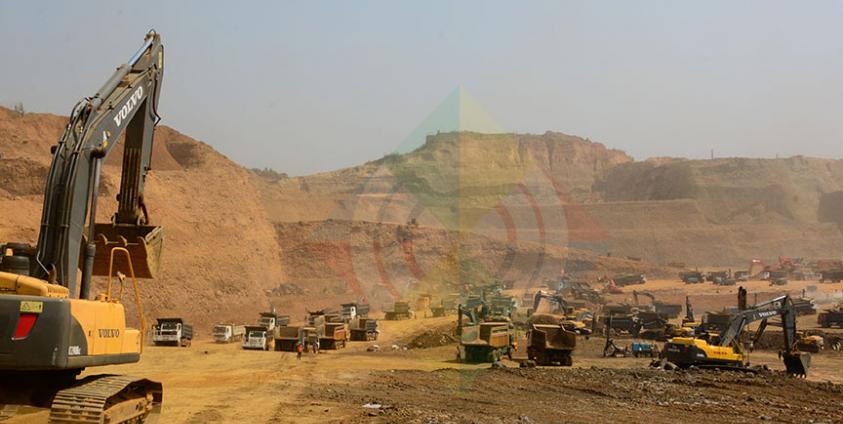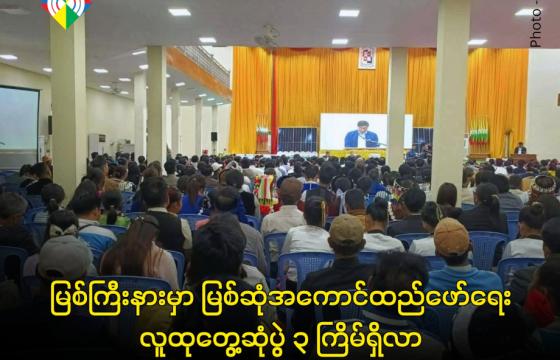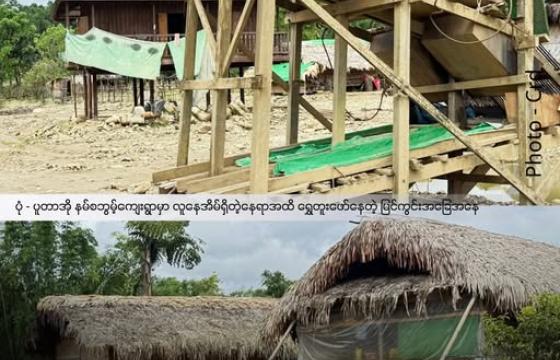Ethnic Kachin people in Hpakant, Kachin State, formed a leadership body on Monday —known as the Indigenous Rights Group of Mungnawk Hkawng Uru Ga—tasked with protecting local rights and land.
After complaints of lost natural resources, depleted forests, and collapsing mountains in the area, chairperson Hkum Seng Naw said that the initiative was founded “to get our rights back.”
“We are proud to be living in the Uru Seng Maw region,” he said, referring to the Hpakant area by the name under which it is known in the Kachin community. “We will report to the government for the betterment of the livelihoods of indigenous people.”
The establishment of the Indigenous Rights Group of Mungnawk Hkawng Uru Ga took place after meetings were held in Lon Khin, Hpakant, and the Seng Tawng areas over the last week.
“First, we will try to seek commonalities. Then we will make our organizational structure stronger. We will explain our future plans to indigenous people in Hpakant. After that, we will cooperate with the government in accordance with the UN’s Declaration on the Rights of Indigenous Peoples,” Hkum Seng Naw said, referring to the rights of hereditary chiefs to protect their territory.
The group defines “indigenous” as people who have lived in the Hpakant area for more than 400 years and were ruled by the three hereditary chiefs: Laisai du, Ginsi du and N’ja du. There is talk in the organization of building a museum to serve as a “window into the history and lives” of these communities.
A motivation for this project has been changes to the area caused by jade mining. The practice has made traditional agricultural practices more difficult and has damaged the environment, explained Lamawng La Tawng, who worked for the Social Development Association of Hpakant Region.
"There were tigers and ghayal [cattle] in our area in the past. Now they have already disappeared. Our forest is already gone. We won't have our territory in the next five to 10 years,” he told KNG. “We cannot grow plants on their disposable stones,” he added, referring to jade, the resource for which the area is known. “Indigenous people have to protect the land by themselves.”
Locals say they have grown worried about the future of Hpakant because they were not consulted by the government about any laws concerning jade extraction, and that they feel “ignored” and marginalized as people from across Burma move to the region to seek work in the mines.
A symptom of these changes, Lamawng La Tawng explained, is witnessing the original names of Kachin villages disappear and be replaced with Burmese names.
“We have lost our rights. We cannot protect our farmland. We are trying again to restore our rights and our farmland,” Duwa Laisai Mung Ra, a descendent of one of the Mungnawk Hkawng Uru Ga area’s hereditary chiefs, told KNG.
Members of the Indigenous Rights Group of Mungnawk Hkawng Uru Ga are planning to launch a rights-based campaign on the International Day of the World’s Indigenous Peoples on August 9.







